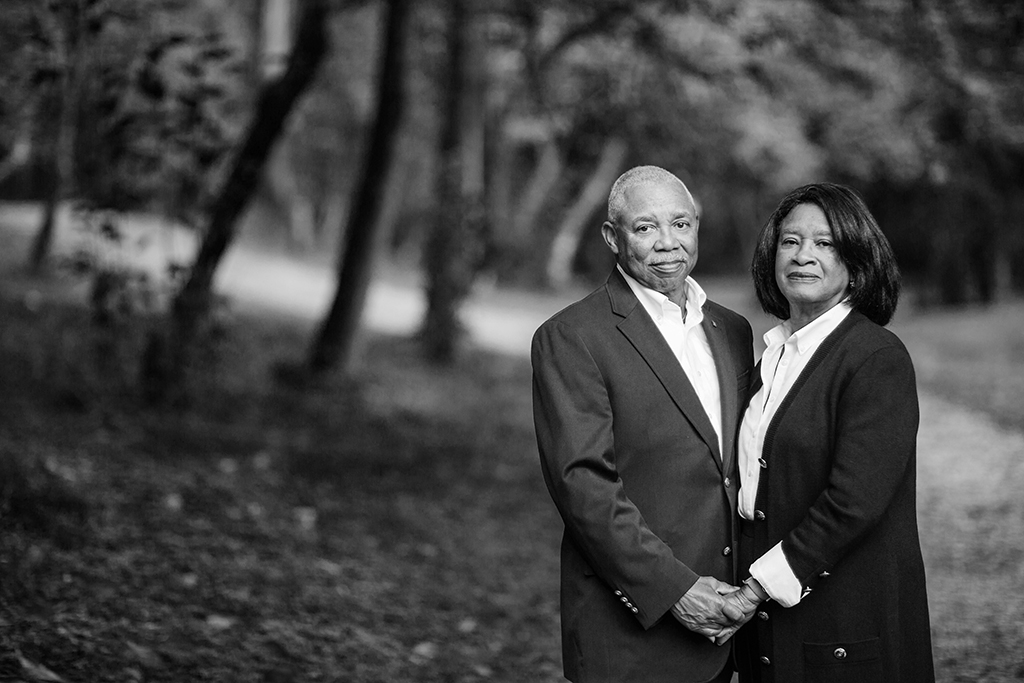Charles and Edwena Crowe
Charles Crowe’s first day at Berea College might have been his last. “As I was moving into my room, this white guy comes in and announces that he was my roommate, and that immediately changed the tone of everything,” he recalled. “I told my parents, ‘I’m not staying here.’”
Growing up in an African American community in Johnson City, Tenn., during the Jim Crow era, the prospect of sharing a room with someone so different unnerved Crowe. He was ready to leave—right then—and go home. His father sternly said, “No!”
His parents’ insistence that he stay at Berea College turned him around.
“It forced me into a situation where I finally understood that we were all the same,” Crowe said. “That’s one of the things Berea students carry away that students [elsewhere] do not get. When you look at what’s going on today, you have to listen and learn and be open minded to actually bring cultures together. It takes courage, and Berea has a history of stepping out there. This is not something new to Berea. To do the right thing is where Berea has always stood tall.”
“It takes courage, and Berea has a history of stepping out there. This is not something new to Berea. To do the right thing is where Berea has always stood tall.”
Charles Crowe ’70
After graduating in 1970, Crowe realized the value of what he gained at Berea. “I was not intimidated by being the only one (minority) in an all-white environment,” he explained. “I understood that if I competed, it might require doing my job like everyone else, but I could be successful.”
Success for Crowe included a 30-year career with the U.S. Department of Energy at Oak Ridge, Tenn. William Ramsey, Berea’s then dean of Labor, had developed a training program for one of the nuclear facilities there, and Crowe had worked with Dean Ramsey at Berea.
“The minute they saw on my résumé that Dean Ramsey had been my supervisor, that was huge,” he recalled.
Experiences like these changed Crowe’s life and led him to a lifelong commitment to the College. Not only has he received the Distinguished Alumnus Award and served on the Alumni Executive Council and as an alumni trustee for six years, he and his wife, Edwena, have chosen to support the College financially through regular donations. They also have included Berea in their wills.
“Giving to Berea, you know where your donations are going, and who and what they are supporting,” Edwena Crowe said. “It’s that group of kids who, otherwise, might not have gotten to go to college. There are kids we have pointed in the direction of Berea.”
“It changes their lives,” Charles Crowe added. “There’s a student there right now who came from a very, what I’d say, poor background but has just blossomed there. I think that there’s nothing more important than youth development.”
That commitment to youth development—at Berea College and in their community—led Crowe and two of his friends to establish the Men of Tomorrow Foundation for underprivileged youth in Oak Ridge.
What began with a small group of African American young men has expanded, and 31 years later it serves a diverse population including women, white people, Latinx people and others from surrounding counties.
Their foundation serves students in grades six through 12 to develop a good self-image, provide positive role models, emphasize academics, and encourage career and cultural development. Successful participants receive a $1,000 scholarship to the school of their choice and a laptop computer.
“We are quite proud of those kids,” Crowe said, noting that several attended Berea and others organized satellite foundation chapters in areas across the U.S. “We’ve seen where they come from and what they’ve turned out to be.”


